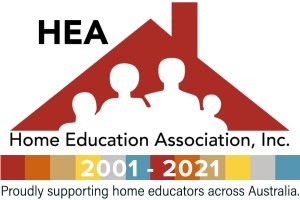Should you have to write reports nobody reads?
- HEA Committee

- Apr 15, 2022
- 4 min read
We don't think so! But that's what the QLD Government is proposing.
Welcome to part 4 of the HEA's position paper in response to the EGPA Review
Consultation Paper. (Part 1 found here)

Need a copy of the consultation paper? Email us at contact@hea.edu.au
Want to respond anonymously? No problem - send your response to us at contact@hea.edu.au . We will de-identify it and include in our submission.
The full position paper and templates to help you respond are at the bottom of this page.
Reporting on educational progress
Do you support the requirement to report on educational progress of the child being removed from the legislation? If not, why?
The HEA supports the removal of the reporting requirement however we do not support the requirement to provide samples/evidence in an approved form.
Reporting on educational progress needs to be removed. It is inappropriate to be assessing the child. Children in schools are not penalised for not making a predetermined amount of progress; nor are teachers deregistered if children do not make satisfactory progress. It is therefore inappropriate to apply a higher standard to children and young people who are home educated.
Increasingly, families are choosing home education after traditional schooling has failed their students. Thus, many children and young people are not performing at grade level at their entry point in home education. Reporting on progress may further disadvantage this group of students.
Regulation needs to focus on the parent meeting their obligations under the Act rather than on the performance of the child or young person. This could be done by providing a report on the learning experiences/opportunities provided.
The proposed requirement to provide the evidence of learning opportunities as samples or in any prescribed format is unnecessarily limiting and fails to recognise the diversity and richness of the educational opportunities afforded to home educated children and young people. Requiring evidence in an approved format advantages those who follow a school at home model and disadvantages those towards the natural learning end of the spectrum.
Allowing families to determine the method of providing evidence of learning opportunities reduces the regulatory burden on families and increases the likelihood that regulators will receive reports that accurately reflect the myriad creative learning opportunities created by home educators for their children.
Also, the proposal that the report would “detail the implementation of the educational program” lacks clarity about the definition of “detail”.
What aspects of reporting on implementation of the educational program do you think would facilitate decision-making, e.g. a description of the high-quality learning activities undertaken by the child; samples of work in literacy and numeracy; specific work samples across curriculum learning areas?
A flexible approach is needed, that recognises there is no one way to record or report on learning opportunities provided. Home educators need to be free to demonstrate their child’s learning in a way that supports the educational needs of their children.
The regulator needs a deeper understanding of home education and a mechanism for the community to provide feedback. An advisory body would assist the regulator in decision making and assessing high quality education, just as THEAC does in Tasmania.
Streamlining review of written reports
Would you support the sample assessment approach to annual reports for home education registration?
The HEA cannot support the sample assessment approach as proposed.
Writing reports that are not read or provided with feedback is not a productive use of the home educator's time, and may even be perceived by some as insulting. It is likely that people will not submit reports that are not of value to anyone, resulting in less regulatory compliance rather than more.
On what basis do you think sampling could be undertaken, and what would an appropriate sample be?
The HEA would support the implementation of sampling following the Victorian model. This model involves a 10% sample being audited annually. Key features of the Victorian model include:
Notice is given to those being audited early in the year. Audits are then carried out between April and October on a mutually convenient date.
Flexibility in how the audit is conducted is afforded to the home educator, who may choose to participate via a written report or via a discussion with the regulator either by phone or in person (pre-covid).
Only one child from the family is included in the audit.
If a family participates in the audit for one child, all children in the family are exempt from being in the audit sample for the following 2 years.
Would it be appropriate for all reports to be assessed in the first year of registration?
The Victorian experience shows us that this is not necessary.
However, the HEA could support this proposal if a THEAC type model was included in the legislation.
How can you be involved?
Send your response to the consultation paper either
directly to the Department (use your link) or
to the HEA for anonymous submission (email to contat@hea.edu.au)
Write to your MP
Ask your friends and family to write to their MP’s
What resources are available to support your participation in the review?
The HEA has released a position paper in response to the consultation paper
A form response letter for the review
A form response letter for your MP
View the HEA's full position paper here:
Need help to write your response to the DoE consultation paper? Here's a template you can use:
Write to your MP
Media Enquiries:
Book a time to talk with HEA President Karen Chegwidden
Dr Rebecca English (PhD)
Senior Lecturer
QUT
(07) 3138 3323




Comments